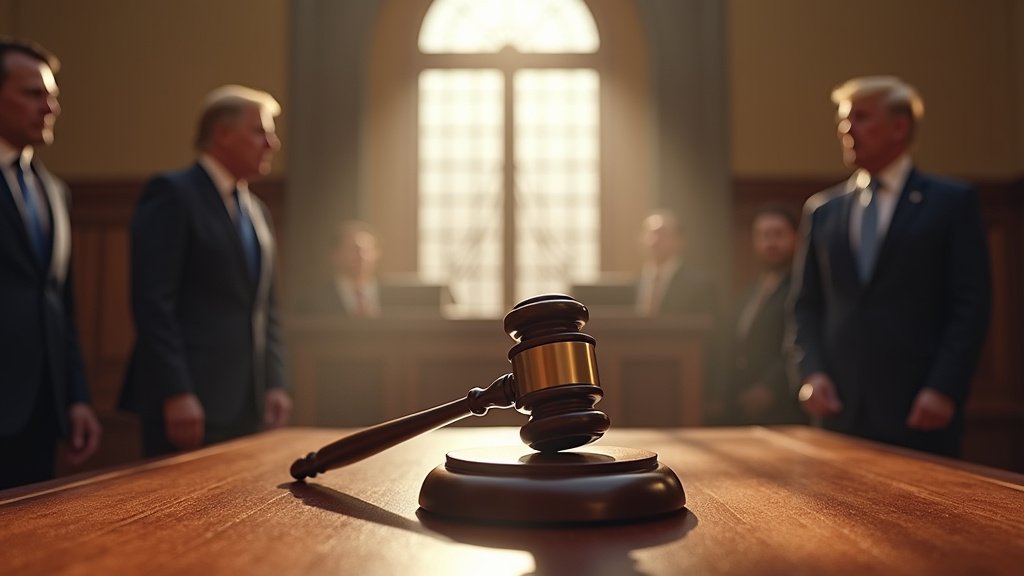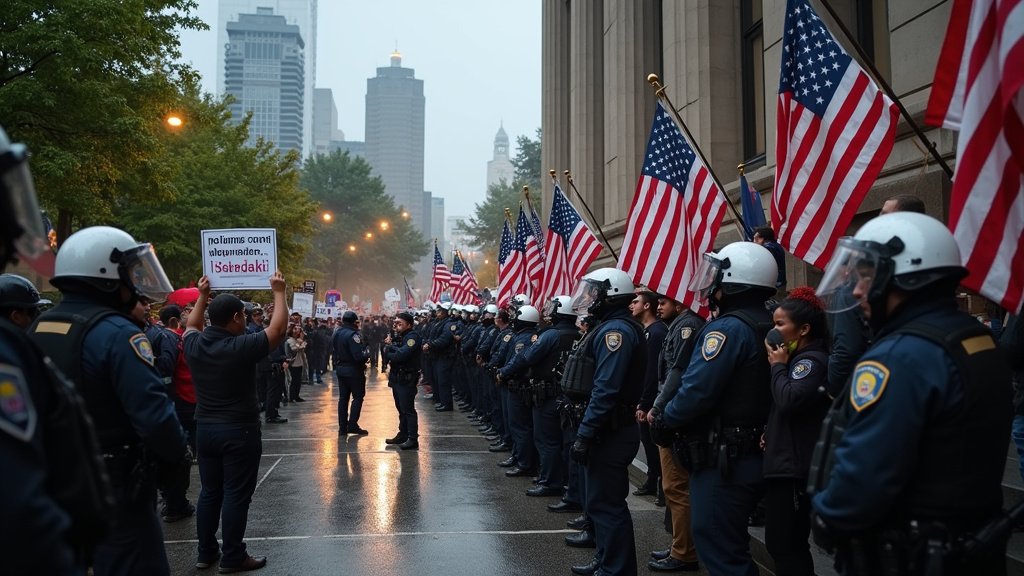In a significant legal rebuff to the Trump administration, a federal judge has temporarily blocked the deployment of National Guard troops to Oregon, including units from California and Texas. The ruling by U.S. District Judge Karin Immergut, appointed by President Trump himself, halted the administration’s efforts to send military personnel to Portland amidst ongoing protests near a federal immigration facility.
Judge Blocks Federalized National Guard Deployment to Oregon
Late Sunday, Judge Immergut issued a sweeping temporary restraining order preventing any National Guard units from being deployed to Oregon. This order came after the Trump administration moved to send California and Texas National Guard troops to the state, an action the judge questioned as an apparent attempt to circumvent her earlier ruling. On Saturday, Immergut had already blocked the federalization and deployment of Oregon’s own National Guard units to Portland. The judge expressed skepticism about the administration’s justifications, noting that the move to send troops from other states appeared to directly contradict her previous order. The White House did not immediately issue a comment on the latest judicial decision.
Contrasting Narratives on Portland Protests
The legal confrontation stems from the Trump administration’s characterization of Portland as a “war-ravaged city” under siege by “domestic terrorists” and facing “insurrection.” President Trump had announced his intent to deploy troops to protect federal facilities amid nightly protests outside the U.S. Immigration and Customs Enforcement (ICE) building. However, state and local officials in Oregon vehemently contested this portrayal. Oregon Governor Tina Kotek stated that the facts on the ground did not warrant military intervention, asserting, “There’s no need for military intervention in Oregon. There’s no insurrection in Portland, there’s no threat to national security.” Officials described the demonstrations as relatively small, often attracting only a few dozen people, and primarily involving peaceful gatherings with occasional flare-ups, rather than widespread riots or rebellion.
Legal Challenges and State Sovereignty
Oregon and the city of Portland initiated legal action, arguing that the administration’s attempt to federalize National Guard troops over the governor’s objections violated federal law and infringed upon state sovereignty. Judge Immergut’s Saturday ruling echoed these concerns, stating that the protests did not justify the use of federalized forces and that allowing such deployments could harm Oregon’s state sovereignty. She emphasized that the President’s determination was “simply untethered to the facts.” The legal filings highlighted that federal law generally prohibits the military from enforcing domestic laws, and the administration’s actions were seen by critics as an overreach of presidential power.
Escalation and Circumvention Attempts
The situation rapidly escalated over the weekend. After Judge Immergut’s Saturday ruling blocking the use of Oregon’s National Guard, President Trump mobilized approximately 300 California National Guard troops, who had previously been federalized for duty in Los Angeles. Governor Gavin Newsom of California quickly vowed to fight this move in court, calling it “a breathtaking abuse of the law and power.” He argued that the administration was attempting to use soldiers as “instruments of his political will.” Furthermore, a memo from Defense Secretary Pete Hegseth indicated plans to activate up to 400 Texas National Guard personnel for deployment to Oregon, Illinois, and potentially other locations. This prompted California and Oregon officials to seek a broader injunction covering any National Guard troops, which Judge Immergut ultimately granted.
Broader Implications for Federal Authority
This series of court orders represents a significant legal check on the Trump administration’s expansive use of federal authority in domestic matters, particularly concerning the deployment of military personnel. The judge, a Trump appointee, repeatedly questioned the legal basis and factual justification for the deployments, underscoring the principle that the nation operates under “Constitutional law, not martial law.” These rulings suggest that while presidents have authority to federalize the National Guard under specific circumstances like invasion or rebellion, such actions are subject to judicial review and must be grounded in demonstrable facts, not mere political rhetoric. The court battles also highlight the ongoing tension between federal and state authority, particularly in Democrat-led cities that have been focal points of protests.
What Lies Ahead
The temporary restraining orders are in effect for a limited period, with further hearings scheduled to address whether they should be extended. The Trump administration has previously signaled its intent to appeal such rulings. The legal fight over the deployment of federalized troops in Oregon underscores the broader debate about the limits of executive power and the role of the military in responding to domestic unrest, with significant implications for future confrontations between federal and state governments. This news concerning Oregon is part of a larger national conversation about law and order, and the executive’s authority.




